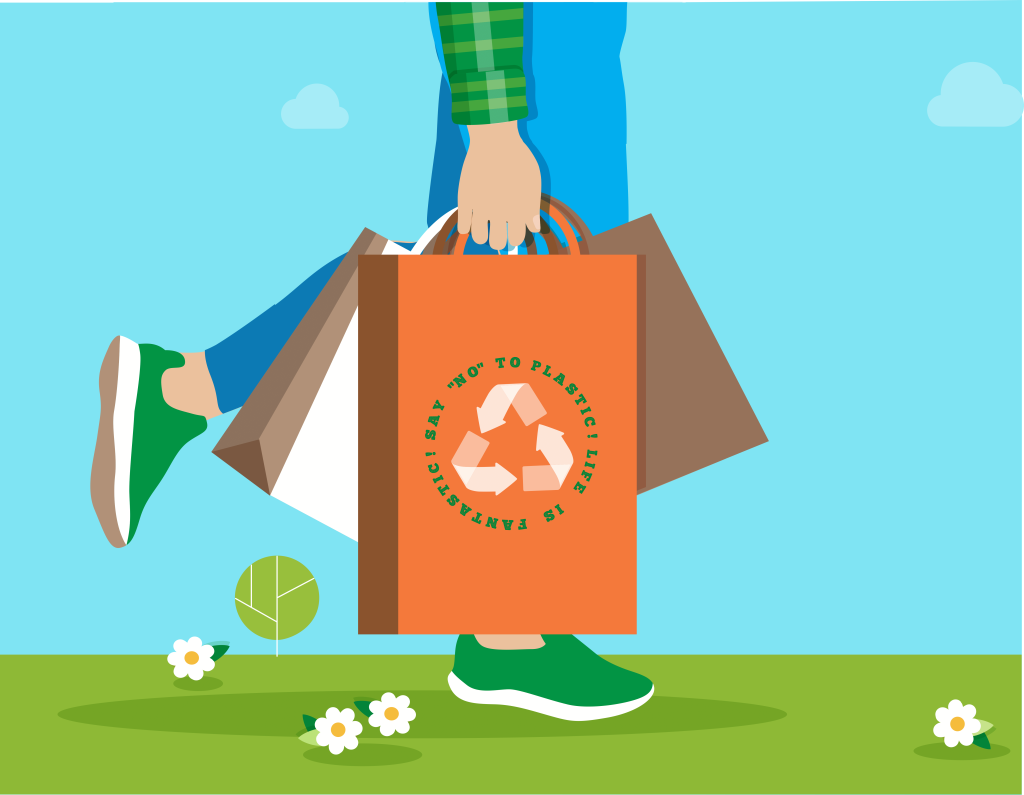
In a captivating chat with our MD/CEO; Abu, on the commemoration of this year’s World Environment Day, we caught a glimpse of his personal beliefs on plastic waste management.
Abu firmly believes in the moral obligation for individuals to adopt sustainable practices, leading him to make eco-conscious choices such as using reusable alternatives and reducing single-use plastics in his daily life.
These convictions have also shaped Sterling’s processes; with measures in place for paperless operations, designated waste bins for plastic recycling, and a commitment to green financing.
Through energy conservation efforts, and a focus on sustainable transportation; such as investing in electric vehicle infrastructure, Abu demonstrates Sterling’s environmental consciousness to the workplace.
Our dedication to tackling plastic pollution goes beyond internal initiatives, as it seeks to raise awareness, advocate for sustainable alternatives, and collaborate with stakeholders to implement effective policies.
This is how Abu responded to some of our questions:
1. What are your personal beliefs and practices when it comes to managing plastic waste, and how do these beliefs influence your lifestyle and decision.
I firmly believe that everyone has a moral obligation to adopt sustainable practices and actively contribute to reducing, reusing, and recycling plastic materials. Our actions profoundly impact the environment, and we are responsible for making conscious choices that contribute to sustainability. Daily, I make a conscious decision to opt for eco-friendly alternatives like reusable water bottles, coffee cups, and shopping bags, to reduce the use of single-use plastics.
This has influenced my lifestyle and translated to our decision as a bank to put measures in place, such as ensuring almost 90% paperless operations across our business units to designated waste bins for different types of waste bank-wide to ensure that plastic waste is appropriately separated and sent for recycling.
2. Could you share an example of how you stay environmentally conscious in your day-to-day life? How do you bring this mindset into your work?
One of the ways I stay environmentally conscious in my daily life is by practicing energy conservation. I strive to minimize my energy consumption by adopting simple yet impactful habits. For instance, I am diligent about switching off lights and electronic devices when not in use.
I also prioritize sustainable transportation choices. So, over the past two years, Sterling Bank has spent over 500 million naira on research and development on EV vehicles. We currently have a pilot EV station at our Adeola Odeku branch, meaning EV vehicle owners can charge their batteries when needed. By putting measures in place to help people reduce their carbon footprint through green transportation, I believe I am contributing to reducing air pollution and greenhouse gas emissions.
Bringing this environmental consciousness into my work is equally important to me. We have implemented various initiatives at Sterling Bank to foster sustainability and environmental responsibility. For instance, we have embraced digital transformation, significantly reduced paper consumption and promoting a paperless work environment. We have also implemented a robust recycling program called WasteBanc, allowing people to earn money by trading their used plastics.
Furthermore, we have integrated environmental considerations into our lending and investment practices. We actively support and finance green initiatives and projects, such as renewable energy ventures, sustainable agriculture, and eco-friendly infrastructure development. We contribute to the transition towards a more environmentally conscious and sustainable future by aligning our business practices with sustainability principles.
3. How do you perceive the challenge of plastic pollution, and what role do you think Sterling can play in this global issue?
Plastic pollution severely threatens our environment, ecosystems, and the well-being of present and future generations. Let’s not forget that our responsibility as individuals is to take bold and decisive actions today that contribute to a sustainable future.
As a bank, we will continue raising awareness about the impact plastic pollution and advocate for sustainable alternatives. We are also very open to collaborating with environmental organizations, and the government, to implement policies to help the reduction of plastic waste.
Also, Sterling will continue to provide funding and financial incentives to businesses and organizations engaged in innovative recycling technologies and waste management systems. This way, I believe we can drive the development and adoption of sustainable solutions on a larger scale.
4. What do you think are some effective ways to instill a culture of environmental consciousness among Sterling’s employees, particularly regarding the reduction, reuse, and recycling of plastic materials?
We must prioritize education and awareness to ensure our employees understand the impact of plastic waste and are empowered to make sustainable choices. I would like to implore leaders in the organization to lead by example by demonstrating a commitment to reducing, reusing, and recycling plastic materials. By doing so, we will inspire our colleagues to do the same.
With WasteBanc, we have created a system that will reward employees and individuals who are committed to environmental consciousness. This can further strengthen the sustainability culture we aim to cultivate.










2 Responses
I RECYCLE PLASTICS. Below are few importance of plastic recycling.
The importance of plastic recycling cannot be overstated in today’s world. Here are several key reasons why plastic recycling is crucial:
Overall, plastic recycling plays a vital role in mitigating environmental damage, conserving resources, reducing waste, and promoting a more sustainable future. It requires collective efforts from individuals, communities, and industries to embrace recycling practices and support initiatives that facilitate the recycling process.
I must confess that this is a very insightful session and a lot has been learnt. this has also given me the energy to do a documentary on Renewable energy.